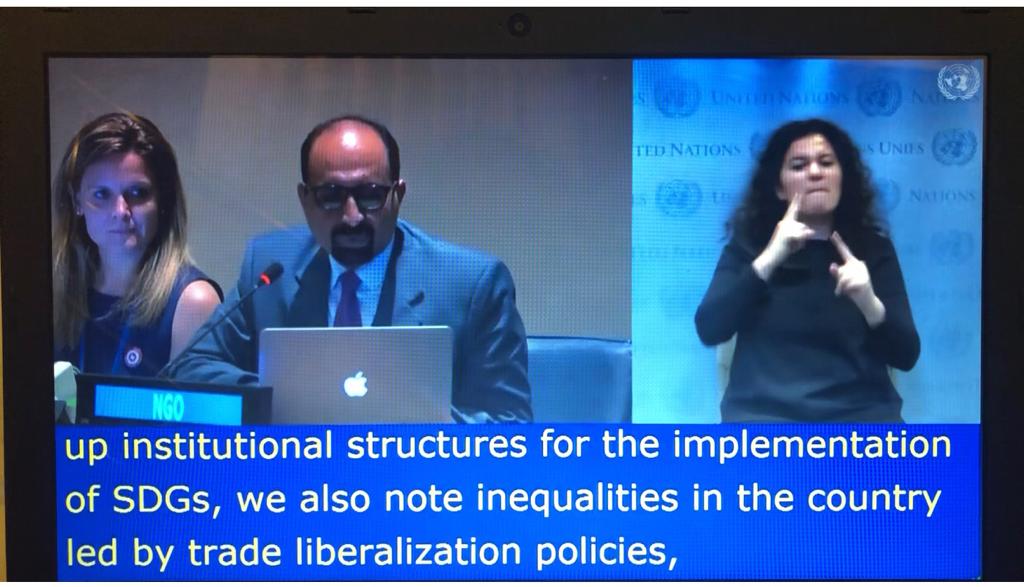Pakistan CSOs statement on VNR at UNHLPF
We, civil society representatives from Pakistan, representing women, youth, people living with disabilities, older persons, religious and sexual minorities and indigenous populations, take this opportunity to congratulate the Government of Pakistan, for presenting Voluntary National Review of SDGs implementation status in Pakistan.
We appreciate government for setting up institutional structures like Parliamentary Task Forces and SDGs Units at national, provincial and regional levels to facilitate and oversight the implementation processes towards the achievement of SDGs. We also appreciate the approval of National Priority Indicators Framework for the implementation of SDGs, however we have noted that progress on national priority indicators framework was not considered while reporting for VNR rather the processes and promises made towards the achievement of SDGs were shared through VNR report.
We are disappointed to note that the report apparently focuses on three of the six priority SDGs for this year’s HLPF review, including Goals 8, 13 and 17, whereas Goals 4, 10 and 16 are not discussed in standalone segments. This limits debate on the critical precursors to sustainable development that carry significant weight in the context of Pakistan. The report also failed to capture and highlight the Citizens’ Voices on VNR process and progress on SDGs collected through stakeholders’ consultations held in 42 district of Pakistan.
We note with concern the widening inequalities in the country, with little discussion found on means to address their root causes. Recent developments show a declining annual growth rate; high anticipated levels of inflation; rising food insecurity; rising debt to GDP ratios; shrinking resources for public goods and services (particularly sexual reproductive health and education); increasing share of debt servicing; patriarchy and fundamentalisms; ageism; democratic; democratic and civic spaces and violations of fundamental human rights and gender based discriminations. These combined with lack of access to public information, and critical data gaps related to natural resources, biodiversity, urban life, climate change, responsible production and consumption, peace and justice, and WASH, and overall democratic backsliding, are likely to leave many behind.
We call upon the government to address data gaps to gauge the true progress of SDGs, build better coordination among public, private and civil society organizations, strengthen local governments, ensure rule of law and justice for all, create enabling environment for civil society, incorporate human rights based approaches, adopt inclusive & innovative strategies and ensure ample finances for the implementation of SDGs.

